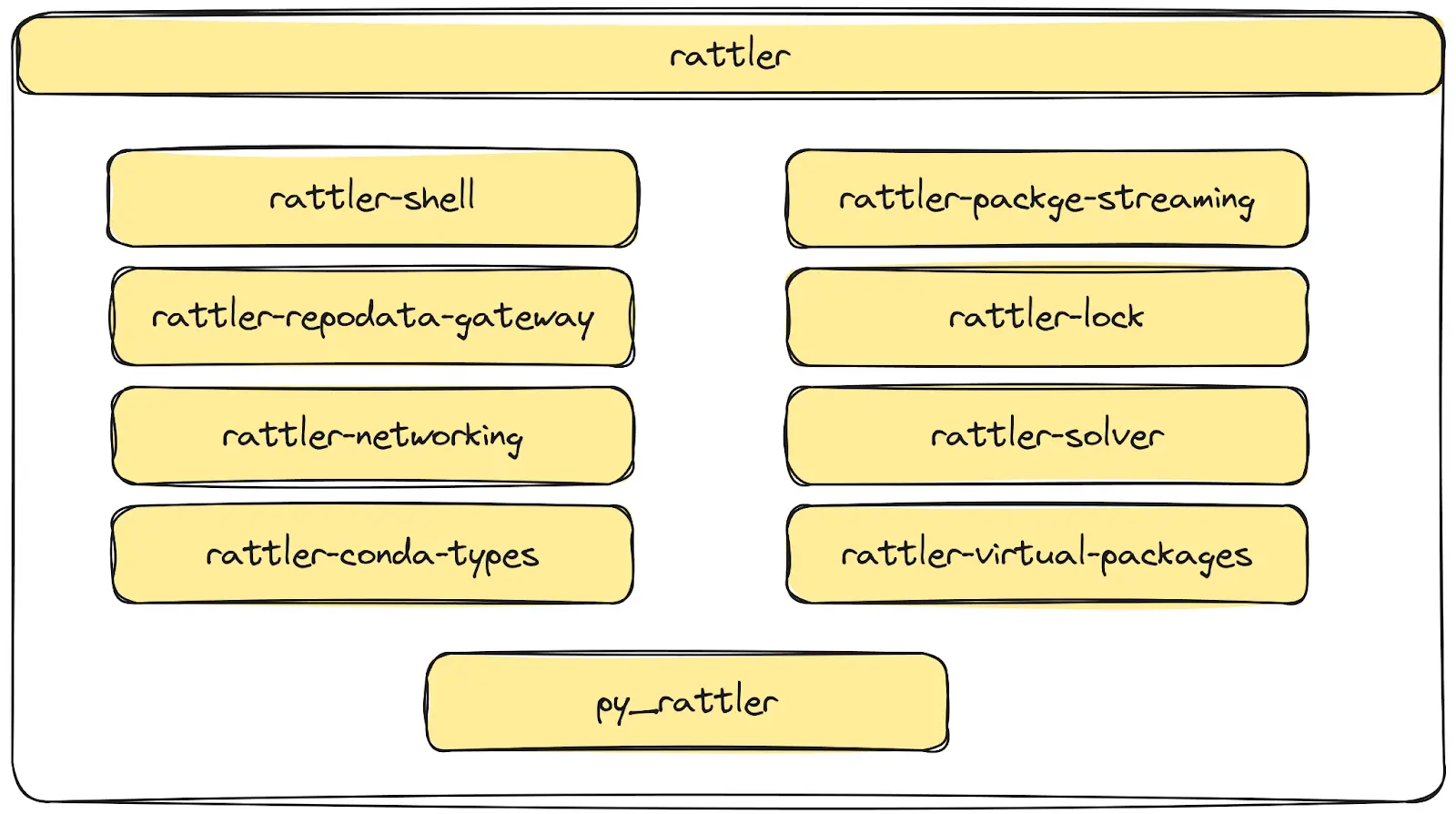:focal(smart))
Prefix.dev — End of 2023
2023 was the first whole year for prefix.dev, the company! It's time to reflect about what we've been up to. Let me unpack (pun intended) the tools and packages we've been building over the course of last year and show you who we are!
The Team
Meet our core team that work full time at prefix.dev of 4 people, Wolf our CEO is joined by Bas, Tim and Ruben. We also have an awesome developer that started on our team from outside of Europe who started as an open source contributor to pixi, moved in as an intern and is now a developer on our team, Tarun. And we've enjoyed, or are currently enjoying the work of multiple freelancers, Adolfo, Eric, Swarnim and Matthias.
Projects
We've taken on the big task of re-architecting how people work with conda packages - from solving, building and installing them. Almost all of our tools are - of course - open source and written in Rust. The center piece is the rattler library that we are using in all of our projects.

The rattler library
Rattler is a all-in-one library of functionalities to interact with with the conda ecosystem. Which itself consists of tightly organized “crates” which provide sub-functionalities. You can see the different crates in the image below.

At prefix.dev the project got full time attention from Bas and has since grown into a very capable library and a corner stone of the company. It is used in all of our projects. Rattler is proudly built in the Rust programming language. Rust provides us with an excellent development experience, is cross-platform by design and allows us to build really performant tools - it's a great choice for CLI tools!
The Web Server for prefix.dev
We are building a high-performance conda package index. The prefix web server implements a high speed search engine, and indexes all of conda-forge, bioconda and robostack and makes them searchable (much faster than anaconda.org!). We also implemented ways of making your own channels on prefix.dev - public or private. In the second half of 2023 we focused on our open source tools, but we are looking forward to innovate more on our index/platform much more in 2024!
The pixi Package Manager
Our main project right now is pixi and the team is laser focused on it. Pixi is a cross-platform, multi-language package manager and workflow tool built on the foundation of the conda ecosystem. It provides developers with an experience similar to popular package managers like cargo or yarn, but for any language and “system-level” packages. We believe that pixi will solve the biggest hurdles in the package management world for users that just want to develop projects and want to skip the yak-shaving that is called package management.
Pixi started as a passion project at prefix.dev - we believe strongly that reproducibility, speed and ease of use should not be mutually exclusive.
We are very happy with the growing interest, measured not only in stars on Github but also in the contributions and questions we are getting from users. Keep them coming!